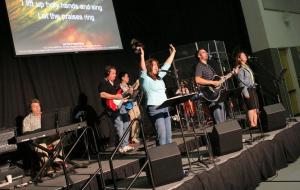 If any preacher needs reasons to understand why the prophets of the Hebrew Bible are nearly absent from 21st pulpits, Isaiah 1:10-18 would be a prime example. I well remember when I was in seminary, now 50 years ago, books about preaching the prophets were ubiquitous. How about “The Prophets on Main Street” or “The Prophets Speak to Us Today’ for catchy and memorable titles? It was the day of the Vietnam War, the continuing racial divides, the sexual revolution, soon to be capped off by the Watergate scandal. The tough words of the Hebrew prophets were just what we all needed to hear, weren’t they? I have no statistics concerning whether in fact sermons based on the prophets were actually preached in those days, but the books that appeared surely suggested that they ought to be. In my brief pastoral ministry in the Deep South, I turned to the prophets regularly as sources for serious preaching; I cannot report whether or not I was heard by very many of my parishioners, but I did try.
If any preacher needs reasons to understand why the prophets of the Hebrew Bible are nearly absent from 21st pulpits, Isaiah 1:10-18 would be a prime example. I well remember when I was in seminary, now 50 years ago, books about preaching the prophets were ubiquitous. How about “The Prophets on Main Street” or “The Prophets Speak to Us Today’ for catchy and memorable titles? It was the day of the Vietnam War, the continuing racial divides, the sexual revolution, soon to be capped off by the Watergate scandal. The tough words of the Hebrew prophets were just what we all needed to hear, weren’t they? I have no statistics concerning whether in fact sermons based on the prophets were actually preached in those days, but the books that appeared surely suggested that they ought to be. In my brief pastoral ministry in the Deep South, I turned to the prophets regularly as sources for serious preaching; I cannot report whether or not I was heard by very many of my parishioners, but I did try.
Fast forward 50 years, and now we have a country so starkly divided in ways too numerous to count, as well as a country where still 80% of self-defined evangelical Christians support a crude, narcissistic, bigoted president, claiming that he has the “mandate of heaven” and may be some sort of messianic figure who is above all criticism. In every way imaginable, Donald Trump is hardly a paragon of Christian virtue. As the evangelical Jim Wallis puts it (I paraphrase): “If you are a hater of immigrants, you are anti-Christ; if you are an abuser of women, you are anti-Christ; if you agree with the Alt-Right, you are anti-Christ.” By those measures our president is quite demonstrably anti-Christ, and his support by so-called evangelical Christians is mind-boggling. Those of us who call ourselves Christians, and I certainly do, are living in a time when the name “Christian” has been altered beyond recognition.
And this fact is no more obvious than when one turns back to the prophets of the Hebrew Bible. Please remember that we Christians include the entire Hebrew Bible in our sacred canon and that Jesus was, among many other things, a prophet fully in the way that Isaiah and Amos were prophets. He, too, attempted to bring the word of God into the world in which he lived, and as a result found few followers and a host of detractors who eventually put him to death. Prophets often end up like that—surely another reason why “prophets have no honor in their own countries,” and quite often are cruelly and murderously rejected for their efforts. But, by heaven, we desperately need our prophets in every age, despite our unwillingness to listen to them.
Let’s hear Isaiah 1 again; his words are harsh and unyielding. No, he is not saying that we need to do our worship in the “right” way: the right sort of music, the right kind of prayers, the correct kind of sermons, the best sort of choirs and the most pleasant of organ music or keyboard or guitar. Our problem, says Isaiah, is that God cares nothing for any of that stuff, because those of us who worship have “bloody hands” and “evil designs” before we ever arrive at the sanctuary. Why, says Isaiah, do you continue to worship in the ways that you do, when God has in effect stopped listening? We do not need better worship, he says, we need a better society, a more just community, and lives driven by righteousness, not greed, concern for the poor, not self-interest. The USA in 2019 now has the largest income disparity of all industrialized countries, and the highest poverty rate among those same countries. We, the richest country on earth, have more poor people than any other first-world land? Does this fact not shock us, appall us, goad us to act? 8th century Isaiah, living in a time when Judah was hardly a rich country, but a time when the rich folk of the land cared little or nothing for the many poor and marginalized ones with whom they lived, yet witnessed comfortable rich ones going merrily off to the temple as they were accustomed to do to worship in the ways they had ben taught. But Isaiah, echoed by his colleague Amos in northern Israel, met them at the temple door with this: “Hear the word of YHWH, rulers of Sodom; listen to the teaching of our God, people of Gomorrah! What do I care about your many sacrifices? I have had my fill of burnt offerings of rams, the fat of well-fed beasts; I have no delight in bloody bulls or lambs or goats” (Is.1:10)!
In a stroke, Isaiah makes a mockery of the most basic worship practice of Israel, the regular sacrifice of animals on the altar of YHWH. God is sick to the teeth of the whole thing. Furthermore, the people’s offerings, no matter how lavish, are “futile” (Is.1:13). All that fragrant incense is “an abomination to me,” using a word reserved for the most reprehensible activity that a human being may do. “New moon (monthly festival), Sabbath (weekly gathering), all assemblies” in fact, since they are inevitably accompanied by “iniquity,” “I hate,” says YHWH; “they have become burdensome, and I am weary of bearing them” (Is.1:13-14). Go ahead and “stretch out your hands” in prayer, but “I will hide my eyes.” To those prayers “I will not listen” (Is.1:14-15).
But exactly why will YHWH not listen, not pay attention; why precisely is YHWH weary and exhausted by the sacrifices of the people? The reason is starkly stated: “Your hands are full of blood” (Is.1:15), and by this YHWH does not mean the blood of all those sacrifices. No, this blood is the result of their evil, and the content of that evil is spelled out as clearly as possible in 1:16-17: “Remove the evil of your doings from before my eyes; stop doing evil; learn to do good!” And just what is that good? “Seek justice; rescue the oppressed, defend the orphan, stand with the widow.” The implication is clear; these are the things that the people of Israel are not doing, and thus they are doing evil. The society is cankered, unjust. Too many are forgotten, left behind, uncared for, while the comfortable walk peacefully to worship, not knowing that their behaviors have filled their overtly clean hands with blood, the blood of rejection of the poor, the widow, the orphan, all those on the margins of the society.
These are words from nearly 2800 years ago, but they are surely needed in every age, and certainly in our own. No one may call themselves Christian, heading off blithely to worship God, while their community is riddled with poverty, neglect, injustice, hatred, and narcissistic greed. God will not listen to the prayers and choruses and hymns of such people! We do not deserve to worship God with our hands dripping with the blood of our own fellow human beings. That is the harsh word of Isaiah, and it is matched often by the word of prophet Jesus who lambasts those who claim religious lives while they are in effect “whited sepulchers, full of dead men’s bones,” not true followers of God at all. How long will it take us to realize that Christianity is not about right belief or right worship, but about actions of justice for all and the search for a world truly and wholly just, inclusive of all people? Those who claim to be evangelical Christians, and who continue a blind support for a president who is as far from Christian as one can possibly be, need an awakening to their blindness. But so do I, and so do all those who claim the mantle of Christian but live their lives in some ways not Christian in the least. “Stop doing evil; learn to do good,” shouts Isaiah, uttering words that all of us need again to hear and heed.
(Images from Wikimedia Commons)











